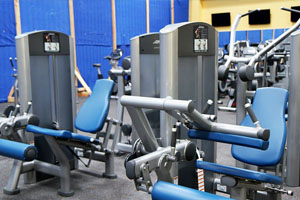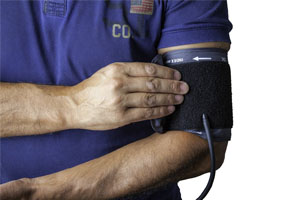Discover effective strategies and exercises to boost your cardiopulmonary endurance Our guide provides insights into improving cardiovascular health and overall fitness
If you're looking to boost your cardiopulmonary endurance, you're on the right track to better overall fitness and health. Cardiopulmonary endurance, often referred to as cardiovascular endurance, is a measure of how efficiently your heart, lungs, and blood vessels can supply oxygen to your muscles during exercise. Improving it can lead to increased stamina, better cardiovascular health, and enhanced performance in various physical activities.
Whether you're an athlete aiming for peak performance or simply want to climb a flight of stairs without feeling winded, there are effective strategies you can implement. This article will guide you through the steps to enhance your cardiopulmonary endurance, providing insights into aerobic exercises, strength training, maintaining consistency, and the role of nutrition. By the end, you'll be well-equipped to embark on your journey towards improved endurance.

Understanding Cardiopulmonary Endurance
Cardiopulmonary endurance refers to the ability of your heart, lungs, and circulatory system to efficiently deliver oxygen to your body's muscles during prolonged physical activities.
What is Cardiopulmonary Endurance?
Cardiopulmonary endurance, also known as cardiovascular or aerobic endurance, is a measure of your body's ability to perform low to moderate-intensity exercises for an extended period. It's a crucial component of overall fitness and is associated with the efficiency of your heart and lungs.
Why is Cardiopulmonary Endurance Important?
Cardiopulmonary endurance is essential for several reasons. It enhances your physical performance, contributes to a healthier heart and lungs, and increases your stamina. By improving this aspect of fitness, you'll have more energy and endurance for everyday activities and exercise routines.
Benefits of Improved Cardiopulmonary Endurance
Enhancing your cardiopulmonary endurance can bring a wide range of advantages to your overall health and fitness. Here are some of the key benefits:
1. Enhanced Cardiovascular Health
Improved cardiopulmonary endurance significantly benefits your cardiovascular system. Your heart becomes more efficient at pumping blood, reducing the risk of heart-related conditions such as high blood pressure, stroke, and heart disease. It also helps lower "bad" cholesterol levels while raising "good" cholesterol levels.
2. Increased Stamina
With enhanced endurance, you can engage in physical activities for more extended periods without fatigue. Whether it's running, cycling, or participating in team sports, you'll have the stamina to perform at your best for longer durations.
3. Better Lung Function
Your lung capacity and function also improve with increased cardiopulmonary endurance. This means your body can take in more oxygen with each breath and remove carbon dioxide more efficiently. It's particularly beneficial for those with respiratory conditions like asthma.
4. Weight Management
Engaging in aerobic exercises that boost your endurance helps with weight management. It burns calories and promotes fat loss, making it easier to achieve and maintain a healthy weight. Regular physical activity also curbs your appetite and improves metabolism.
5. Enhanced Quality of Life
Having better cardiopulmonary endurance means you can enjoy a more active and fulfilling life. Everyday tasks become easier, and you have the energy to participate in recreational activities, travel, and spend time with loved ones. It contributes to an overall higher quality of life.
Improving your cardiopulmonary endurance is a valuable investment in your health and well-being. Consider incorporating aerobic exercises into your fitness routine to experience these benefits firsthand.
Ways to Enhance Cardiopulmonary Endurance
If you're looking to boost your cardiopulmonary endurance, there are several effective strategies and exercises to consider. Here are some ways to enhance your endurance:
1. Aerobic Exercises
Aerobic exercises are among the most efficient ways to improve cardiopulmonary endurance. Activities like running, swimming, cycling, and brisk walking get your heart rate up, challenge your lungs, and help your body transport oxygen more effectively. Aim for at least 150 minutes of moderate-intensity aerobic exercise per week.
2. Interval Training
High-Intensity Interval Training (HIIT) involves alternating between short bursts of intense exercise and brief recovery periods. HIIT is a time-efficient way to improve endurance, as it pushes your cardiopulmonary system to adapt and become more efficient in a shorter time. It's an excellent option for those with busy schedules.
3. Strength Training
While cardio exercises are vital, don't neglect strength training. Building muscle can enhance your metabolism and help you perform daily activities more efficiently. Combining strength training with aerobic exercises can lead to well-rounded endurance improvements.
4. Consistency
Consistency is key when working on your cardiopulmonary endurance. Make exercise a regular part of your routine, and gradually increase the intensity and duration. Over time, your body will adapt and improve its endurance capacity.
5. Proper Nutrition
Your diet plays a crucial role in building endurance. Consume a balanced diet rich in carbohydrates, protein, and healthy fats. Carbohydrates provide the necessary energy for endurance activities, while protein supports muscle recovery and growth. Staying hydrated is also essential for optimal performance.
6. Rest and Recovery
Allow your body sufficient time to rest and recover. Adequate sleep and rest days are essential to prevent overtraining and reduce the risk of injury. Listen to your body and give it the care it needs for long-term endurance improvements.
By incorporating these strategies and exercises into your fitness routine, you can enhance your cardiopulmonary endurance, leading to better overall health and fitness.
FAQs About Improving Cardiopulmonary Endurance
Q1: What is cardiopulmonary endurance, and why is it important?
A1: Cardiopulmonary endurance, often referred to as cardiovascular endurance, is the ability of your heart, lungs, and blood vessels to work together efficiently during physical activity. It's crucial because it affects your overall fitness and health. Improved cardiopulmonary endurance can enhance your energy levels, reduce the risk of chronic diseases, and make daily activities easier.
Q2: What are some good aerobic exercises to boost cardiopulmonary endurance?
A2: Effective aerobic exercises include running, swimming, cycling, brisk walking, and dancing. These activities elevate your heart rate and challenge your lungs, helping to improve endurance. It's recommended to engage in at least 150 minutes of moderate-intensity aerobic exercise per week for optimal results.
Q3: Is strength training necessary for enhancing cardiopulmonary endurance?
A3: While aerobic exercises are the primary focus for improving cardiopulmonary endurance, strength training should not be overlooked. Building muscle can enhance your metabolism, support overall fitness, and make daily activities more efficient. Combining both aerobic and strength exercises can lead to a well-rounded endurance improvement plan.
Q4: How can I stay consistent with my endurance training program?
A4: Consistency is key to improving cardiopulmonary endurance. Set specific goals, create a workout schedule, and find a workout buddy or community to help stay motivated. Tracking your progress and making gradual increases in intensity and duration will also contribute to your success.
Q5: What role does nutrition play in enhancing cardiopulmonary endurance?
A5: Nutrition is essential in your quest to improve endurance. Carbohydrates provide the energy needed for endurance exercises, while protein supports muscle recovery and growth. A balanced diet with healthy fats and proper hydration also contributes to optimal performance. Consult with a nutritionist or dietitian to create a personalized nutrition plan for your fitness goals.










